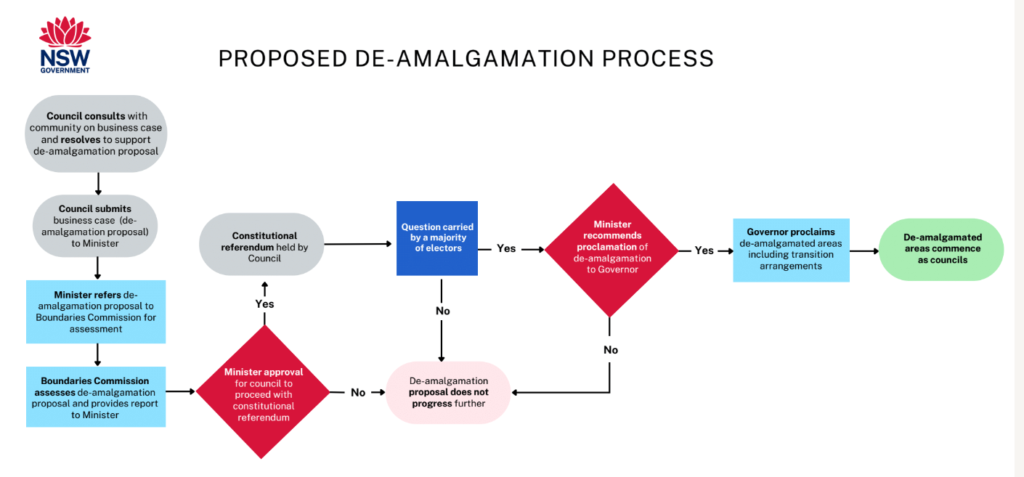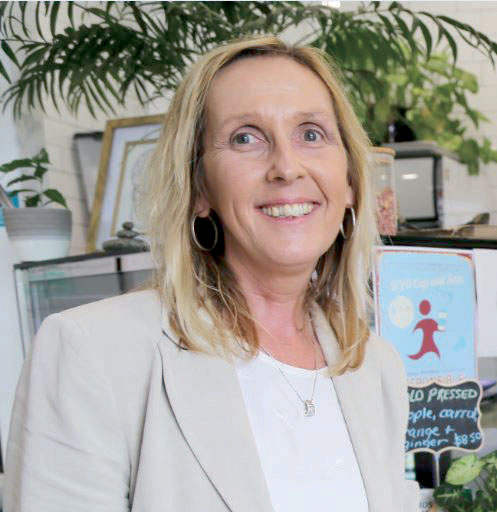The NSW Government’s decision not to fund council de-amalgamations will make it virtually impossible for councils wishing to de-amalgamate according to Local Government NSW (LGNSW).
LGNSW President Darriea Turley said it was disappointing that councils should have to carry the financial burden of unravelling amalgamated councils forced on the community by the previous Coalition Government.
“It’s a cunning public relations exercise by the State Government so that it looks good in the eyes of ratepayers by agreeing to allow de-amalgamations, while at the same time knowing councils cannot foot the bill to carry them out,” Turley said.
The former government amalgamated 44 councils across the state in 2016, including Gosford and Wyong councils which became Central Coast Council.
Former councillor Jane Smith, who was Central Coast Council’s first mayor, said the new legislation further erodes local democracy and puts roadblocks in place for communities.
“Councils would be prohibited from holding a referendum to find out what their community thinks about a demerger – until after a long, drawn out process of Business Cases and Boundaries Commission process,” Smith said.
“Even then, a Council has to get permission from the Minister to be able to hold that referendum.
“This is a further removal of democracy.”
Smith said Labor was instrumental in changes to the legislation in 2021 that required the State Government to pay for any council demergers that occurred within 10 years of the merger.
She said Labor had now backflipped on that commitment.
Minister for Local Government Ron Hoenig said the proposed amendments would provide a new legal pathway for NSW councils seeking to demerge.
Under the changes, councils must develop a business case up front.
Following a review by the Local Government Boundaries Commission, the Minister may then approve a referendum which would require majority support from electors to proceed with a de-amalgamation.
“The forced amalgamation of NSW councils was a failed and expensive experiment,” Hoenig said.
“While the NSW Government strongly supports a clear process for councils and communities to exercise their democratic right to pursue de-amalgamation, we also have to be realistic about some of the challenges this brings.’’

Greens MLC Amanda Cohn introduced a Bill in Parliament last year which would have allowed binding plebiscites on de-amalgamations that would be funded by the NSW Government.
That bill was expected to be debated in March.
“Instead, this proposed legislation takes councils one step forward legally but two steps back because of the financial burden it poses for them to fund their own de-amalgamation,” Cohn said.
Demerge NSW Alliance, which includes Central Coast Friends of Democracy, said NSW Labor had walked away from a pre-election commitment on council demergers and urged MPs to support Cohn’s bill.
Central Coast Council said any decision on demerging would need to be made by an elected Council.
“It is likely that there would be significant one off and ongoing costs of demerging,” Council said.
“Given the Inner West’s reported cost of demerging ($150M over 10 years), the size and complexity of Central Coast Council would suggest that the cost of a demerger for the Central Coast community would be greater than this.”
Merilyn Vale



